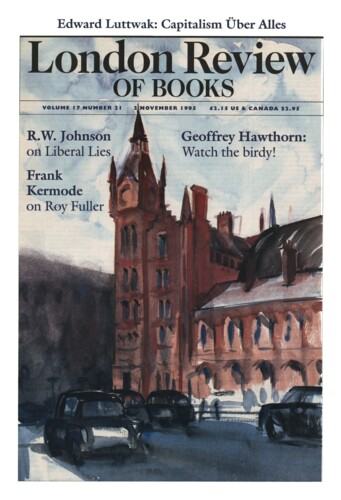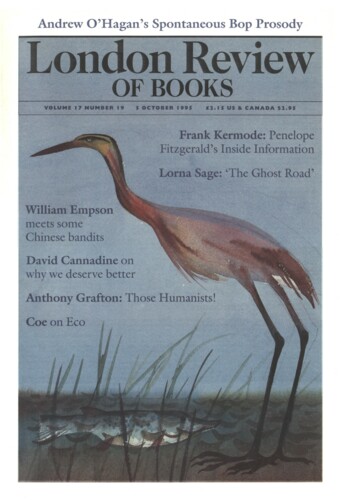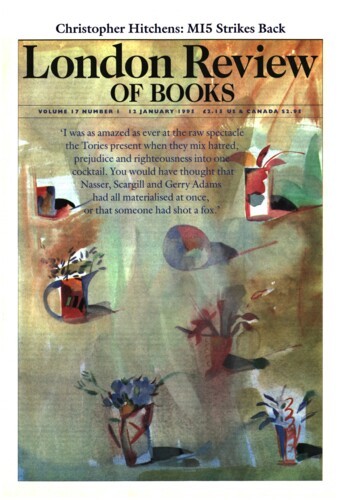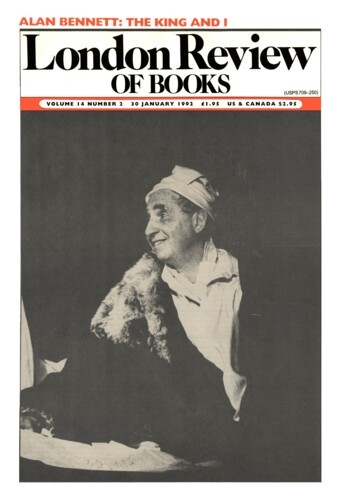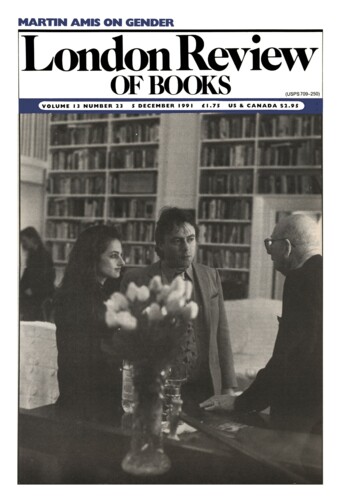Bodily Waste
David Trotter, 2 November 1995
No other 19th-century artist made quite such a spectacle of the female body as Edgar Degas. Over three-quarters of his output of paintings, drawings, pastels, prints and sculptures consists of images of women, sometimes seen in the company of men or children, but more often alone or with other women. The nude figure is the subject of about a fifth of that total, from the copies and life studies he made as a young man in the 1850s through the early history paintings to the naturalistic studies of the 1870s and 1880s and beyond.
